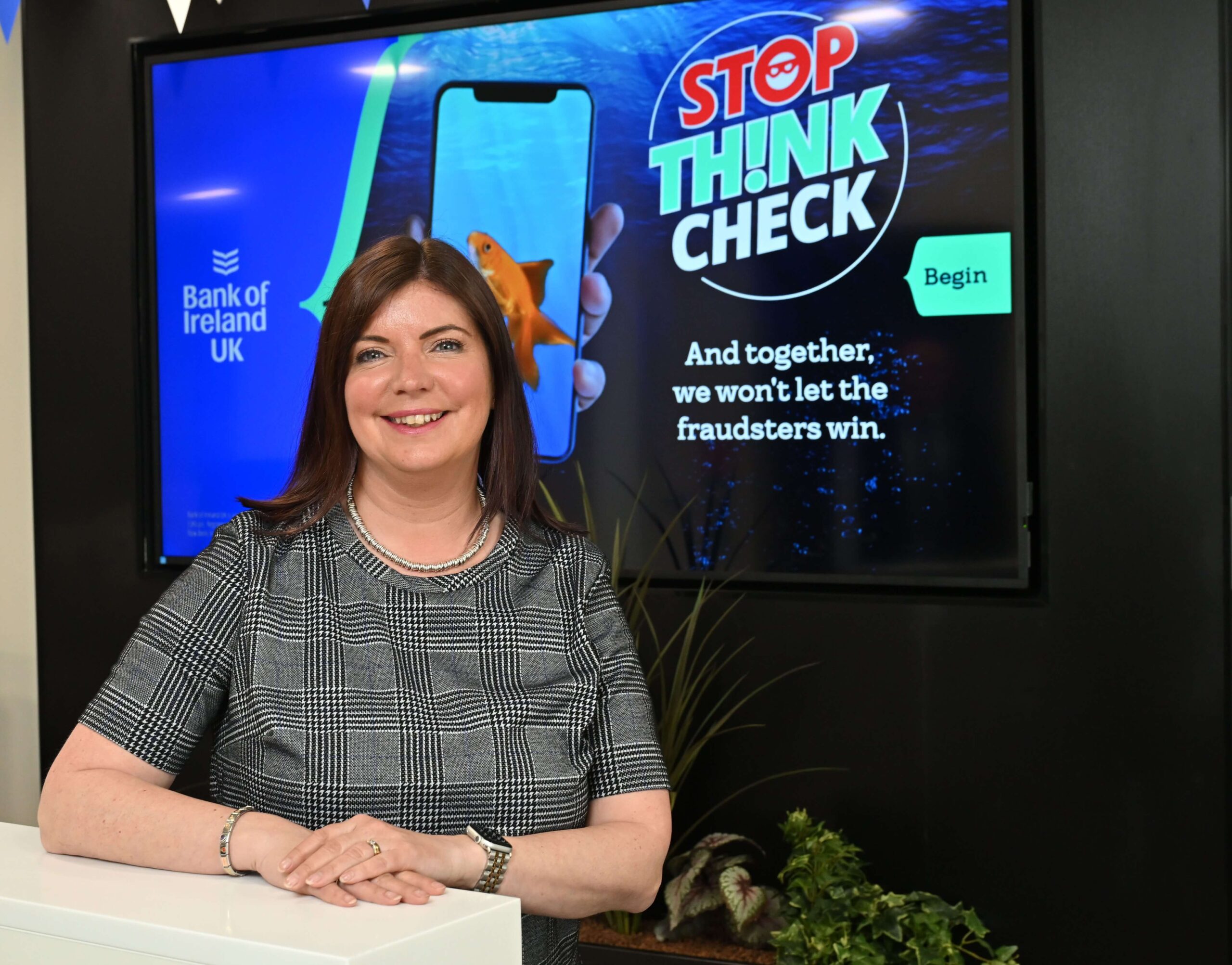Consumers warned to swipe left on scammers to avoid heartbreak this Valentine’s Day

- Be aware – online connections can have less than amorous intentions
- Be alert to online admirers who don’t want to meet in person
- Never send money to someone you haven’t met
- Real celebrities won’t message fans for money
Bank of Ireland is warning consumers to save themselves from heart ache this Valentine’s Day by staying alert to romance fraud.
With a number of recent high profile celebrity impersonation and catfish scams raising public awareness of fake online profiles, the Bank is encouraging consumers to swipe left on scammers intent on exploiting a romantic connection for financial gain.
Romance fraud begins when a fraudster builds a fake persona, often on social media or dating apps, and targets a person to start a relationship with them, which they aim to build over time. Once the fraudster establishes their victims trust they will often claim to be experiencing a problem, such as a health issue or flight tickets, which they need money to resolve.
Often the fraudster starts with needing a small amount of money and they then convince their victim to make multiple payments over a period of time.
Bank of Ireland has recently seen an increase in the volume of cases reported, however many incidents may go unreported as victims stay silent due to feeling embarrassed or ashamed.
Allison Ewing, Fraud Customer Experience Manager, Bank of Ireland UK, is urging consumers to stay vigilant to romance fraud.
“We are all more used to connecting online now, but it’s important to be aware that a seemingly innocent connection may hide much darker intentions. Real relationships take time to develop, so if a relationship is happening too fast and there is money involved unfortunately it’s probably a fraud.
Consumers need to swipe left on scammers and protect their finances from fraudsters on social media and dating apps. While fake profiles and the Brad Pitt impersonation scam have made headlines recently, consumers need to have their guard up to fraudsters at all times. Our message is never send money to someone you’ve only met or chatted with online, and if you are a victim of a romance scam don’t be embarrassed, contact your bank to see what actions they can take to support you.”
Romance fraudsters often:
- Create fake profiles on social media or dating apps/websites.
- Use elaborate stories, such as claiming to be overseas for work or in the military, to justify not meeting in person. They may pretend to have a glamorous but isolating job that makes it hard from them to answer your video calls or meet.
- Send daily messages which can quickly turn to declaring love.
- Request money under various fabricated stories, including for emergencies, medical expenses, travel costs, or investments. Fraudsters may seek to gain sympathy by fabricating a dying family member, illness or financial hardship. They invent urgent situations to pressurise their victim.
How to protect yourself from romance fraud:
Stop:
- Be cautious with new online relationships. Take your time to get to know someone and verify their identity.
- Be wary if you receive a message from a celebrity, these often come with a request for secrecy as it can’t come out in the media, and then an ask for money as their assets are tied up due to legal proceedings, i.e. divorce.
- Never send money to someone you haven’t met in person.
Think:
- Look for warning signs. Be wary of people who avoid video calls or meeting in person and who quickly express their love or ask for financial help.
- Pay attention to inconsistencies in stories.
- Remember – celebrities don’t tend to message fans for money!
Check:
- Use reverse image search tools to check if photos have been taken from somewhere or someone else.
- If in doubt, don’t be afraid to chat with a trusted friend or family member.
What to do if you’ve been scammed:
- Stop communication with the suspected scammer immediately.
- Report it to your bank, the PSNI and any relevant platforms, such as dating websites or social media platforms.
Bank of Ireland emergency fraud phoneline:
(Available 24 hours 7 days a week) Freephone: 0800 121 7790.
More advice and information on fraud is available at: Security and Fraud – Bank of Ireland UK